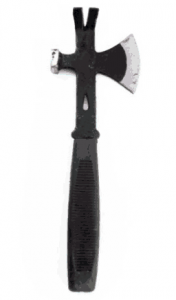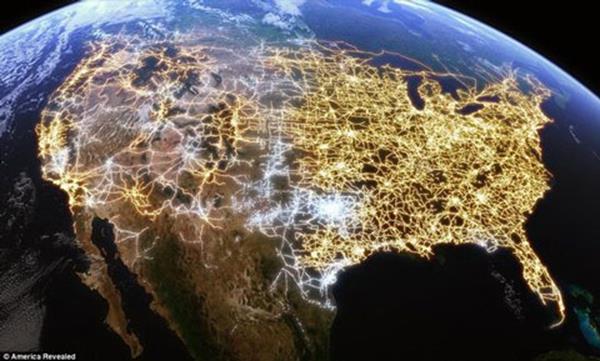This article was written by Jodi and Julie of Food Storage Made Easy fame. It was one of their most popular articles this year. You can listen to Jodi and Julie every other Thursday on The Survival Mom Radio Network.
When disaster is “about” to strike, you may have a couple of days, hours or minutes to prepare. When the disaster is like that of Hurricane Sandy, people had a few days to “prepare” for it. Although we teach to be prepared far before a few days ahead of time, we had some great suggestions from our readers of things you could do “relatively” last minute.
Follow our FREE checklists to be prepared long before the storm hits next time. Whether that storm be a natural disaster, economic crisis, or just a personal disaster.
- Fill your gas tank.
- Have a 72 hour kit for every person in your family.
- You should have cash in your 72 hour kits because if electricity is out bank ATM’s won’t work.
- Turn your fridge and freezer to a colder setting & if you lose power keep the doors closed as much as possible.
- If you have extra space in your freezer, take containers or zip-loc bags full of water and fill in the extra space.
- Charge all your electronic devices and keep them charged just in case you lose power.
- Keep a list of emergency numbers handy, along with family members’ phone numbers. Write them down if you only have them stored in your phone.
- Have an emergency escape plan from your home and make sure all family members know it and know where to meet.
- Clean out your gutters before the storm comes and make sure that the storm drains on your street are clear from all the fall foliage.
- Check your sump pumps.
- Be ready to help your neighbors.
- Get batteries.
- Get a radio so you know what’s going on.
- Board up your windows. Stay away from windows.
- Have everyone one sleep in the same room so you can keep tabs on them.
- Make a few meals and snacks that will last without power.
- Make sure to have a non-electric can opener.
- Have lots of non-perishables on hand.
- Have enough food and litter for your pets.
- Have an emergency binder with all important paperwork ready to go.
- Have your prescriptions filled.
- If you have a gas grill, make sure you have a full tank of propane.
- Do your laundry now, so you have clothes that are dry and clean.
- Make sure you have a car charger for your cell phone.
- If you have a fireplace that you can use to cook in, have a supply of wood.
- Check with your elderly and family to make sure they are prepared or invite them over.
- Find your glasses so you don’t have to deal with contacts in an emergency.
- You can use your water heater for extra water too. Just shut off the intake valve so that you aren’t bringing in contaminated water and use the spigot in the front to dispense water.
- Fill up some quart and gallon bags with water and freeze them, you can use them for ice or in the cooler if needed.
- Keep items you don’t want damaged by water in the dishwasher as it is waterproof.
- Have glow sticks on hand for little ones, especially at bedtime.
- 32. Consider filling large containers (the big 40-gal Rubbermaid totes) from the tub spigot, and storing them in the tub. COVER all bins/tubs of water to keep kids and pets safe.
- Get hand sanitizer and wet wipes to wash with.
- Improvise an emergency toilet with a bucket lined with a bin bag and some sawdust or cat litter to cover the contents after each use.
- Be careful of carbon monoxide when using gas heaters/stoves or candles.
- Take pictures of every room and closet in your house – it makes a huge difference if you have to deal with insurance companies.
- Have a rain barrel to collect water you can use to flush toilets.
- Get solar outdoor lights, you can use olive oil in jars with wicks as well.
- Pick up a solar phone charger then you will still have power for your cell phone.
- If you have a good old fashioned plug in land line phone and socket this will serve you better than a cell phone.
- Refill dish soap/laundry soap/ hand soap bottles back up slowly with water, you then have a easy bottles filled for light cleaning, and easy rinsing.
- If you have to use a gas-powered generator, make sure to have a little extra fuel on hand; just be very careful where you put it, and be mindful of your local laws on how much you can have on hand at one time.
- Don’t forget to pay attention to fire prevention measures. Have your extinguisher handy.
- A chainsaw is good for clearing fallen trees. Only use one if you have prior experience. The aftermath of a storm is not the time to be learning how to use it.
- Anyone with an oxygen tank – make certain you have 1) a travel tank, 2) a generator or means to operate your home device, 3) that you have notified health officials of your scheduled location during and after the hurricane.
- Have books and other non electric entertainment like board games ready for everyone (and flashlights or lanterns for when it gets dark).
- Have canning lids on hand so you can, can the meat if freezer defrosts. Use either the wood/coal stove or a gas range. Have the jars sterilized in the dishwasher ready.
- Use silicon caulking to seal a stopper in the bathtub before filling it. LOCK the door as a safety measure for kids that may climb in.
- Prepare an evacuation list of things you would need to grab in case you need to evacuate.
- Turn OFF the TV! If you want to keep updated check for updates then turn it OFF. The constant hype will stress you and your children out.
Start now to make sure you are staying prepared.
Via: thesurvivalmom
 Follow
Follow


